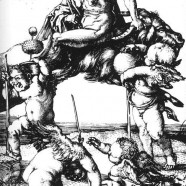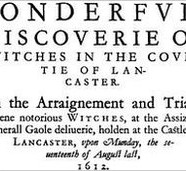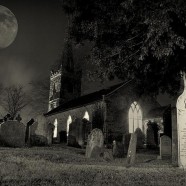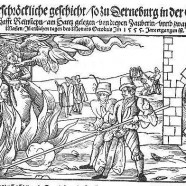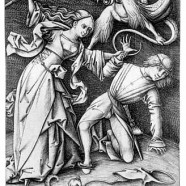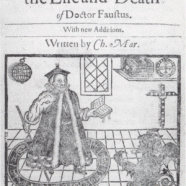Witch Persecutions, Women, and Social Change: Germany 1560-1660
PART FOUR, Last in a seriesRead Part One, Part Two, and Part Three.The late 16th and early 17th century was an era of radical social, economic, and religious change. As women had much to lose, they had reason to rebel. And they remained a threat to the new social order. Art of this period often depicted women as insubordinate and wanton: beating their husbands, swilling wine, and lustfully dragging men to bed (Merchant 133). Reformer John Knox was of the opinion that if a woman was presumptuous enough to rise above a man, she must be “repressed and bridled” (Ibid 145). This was...
Read MoreThe Pendle Witches and Their Magic, Part 1
In 1612, in one of the most meticulously documented witch trials in English history, seven women and two men from Pendle Forest in Lancashire, Northern England were executed. In court clerk Thomas Potts’s account of the proceedings, The Wonderfull Discoverie of Witches in the Countie of Lancaster, published in 1613, he pays particular attention to the one alleged witch who escaped justice by dying in prison before she could come to trial. She was Elizabeth Southerns, more commonly known by her nickname, Old Demdike. According to Potts, she was the ringleader, the one who initiated all the...
Read MoreAll Hallows Eve in Old Lancashire
Come Halloween, the popular imagination turns to witches. Especially in Pendle Witch Country, the rugged Pennine landscape surrounding Pendle Hill, once home to twelve individuals arrested for witchcraft in 1612. The most notorious was Elizabeth Southerns, alias Old Demdike, cunning woman of long-standing repute and the heroine of my novel Daughters of the Witching Hill. How did these historical cunning folk celebrate All Hallows Eve? All Hallows has its roots in the ancient feast of Samhain, which marked the end of the pastoral year and was considered particularly numinous, a time when the...
Read MoreWitch Persecutions, Women, and Social Change–Germany: 1560 – 1660
Burning witches, 1555. PART THREE (Read Part One and Part Two.) Major witch hunting panics arose in the 1560s throughout Europe and were especially severe in the German Southwest. Who were the victims of this mass hysteria? Even though witches were believed to come from all social classes, the trials focused on poor, middle-aged or older women (Merchant 138). Throughout Europe, midwives and healers were particularly suspect. These “wise women” who healed with herbs were held especially suspect, as they were often older women who had astonishing empirical knowlege, which their...
Read MoreWitch Persecutions, Women, and Social Change–Germany: 1560 – 1660
“The Evil Wife” by Israhel van Meckenem, 1440/1445-1503A woman, encouraged by a demon, beats her husband with her distaff.PART TWOBy the latter half of the 15th century, the feudal agrarian economy was beginning to crumble, while the capitalist market economy was growing more and more powerful, as did economic competition between men and women. Men active in the market economy tried to further their interests by simultaneously excluding women from many professions and trying to marginalize the domestic economy by claiming that home-produced goods were inferior to shop-produced...
Read MoreChristopher Marlowe’s Doctor Faustus
In the witch trials that raged across Europe in the 16th and 17th centuries, legal authorities strove to uncover evidence of a pact between the accused witch and the devil. But did this alleged pact ever exist except in the imaginations of the witchfinders?The legend of Doctor Faustus captivated the public because it purported to reveal the story of real-life German magician, alchemist, and astronomer, Johann Georg Faust, who died in 1540. Rumour had it that his powers were given to him by the devil. His legend first appeared in print in a 1587 chapbook, Das Faustbuch, a cautionary tale of...
Read More
